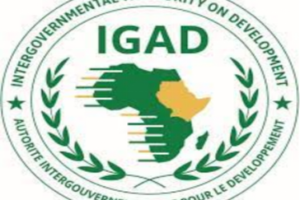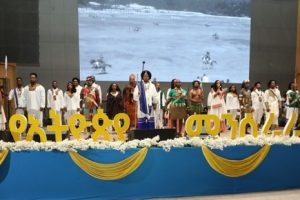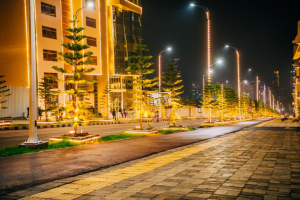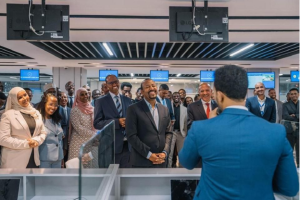BY EYUEL KIFLU
Ethiopia in an effort to address major contentious issues is preparing to stage a national dialogue with main work slated to begin the upcoming May. Since its inception, the National Dialogue Commission (NDC), which is entrusted with a mandate to lead the three-year process, has also been undertaking a multitude of activities.
The commission has been in consultation with various pertinent bodies to make the daunting task inclusive and participatory. Engaging all segments of society and partners is imperative to make all voices heard and all dispute issues are exhaustively discussed. Accordingly, the commission has held strings of deliberations with religious fathers, Civil Society Organizations (CSOs), and other stakeholders.
It is clear that strong civil societies are auxiliaries to overcome the socioeconomic and political predicaments of a nation. And, it is when civil society organizations are efficient that they would play a crucial role in the major undertakings of the country.
In this regard, the Ethiopian Civil Society Organization Council (ECSOC) has been working to coordinate civil societies so that they become strong and an active player in the main activities of the country.
The council is actively representing the CSOs on different national issues. To include organizations in the national dialogue, it is working with the NDC to scale up the contribution of the organizations to the national dialogue, Getaneh Seifu, Research, program, and Development Advisor at ECSOC.
The council has prepared a framework and is working on a code of ethics to explore ways on how the organizations would contribute to the grand plan, he added.
Established on December 20, 2020, based on Article 85 of CSO Proclamation No. 113/2019, as an independent body from the government, ECSOC has been participating in various national issues on behalf of civil societies. Besides, the council has been trying to build the capacity of its members through different mechanisms.
The reputation of CSOs especially for foreign-based organizations is not good among the public. So, the council is working to enhance the name of the organizations and discharge its mandate Getaneh Seifu, Research, program and Development Advisor at ECSOC told The Ethiopian Herald.
“The council is striving to promote and protect the CSOs. It is also engaged in various activities to restore the bad reputation of the CSOs.” The main role of the council is to represent and coordinate the CSOs in the country. And, it is also closely working with the Authority for Civil Society Organizations (ACSO), he said.
There are many questions and concerns raised by different organizations to the government and concerned parties. So when the organizations want to ask their question through the council, the door is open, according to Getaneh.
Also, the council will do its best to get legal answers to their questions. Additionally, any religious, developmental, professional, and other associations registered by the ACSO could be members of ECSOC without any other registration process. And the council has duties in representing and voicing the CSOs.
To promote the organizations, the council held CSOs Week twice in the last two years. In this CSO week, the council in cooperation with ACSO conducted consultative workshop on CSOs and media relations in Ethiopia. The participants discussed the council’s activities and the organizations’ contribution to the community.
The council is working in collaboration with ACSO in the area of registration and other related aspects. In different national issues, they are working in cooperation. Similarly, it participates in the ratification of new decrees through discussion with its members and summits their opinions to the authority, Getaneh elucidated. Following the reform, the Civil Society Organization Proclamation was amended.
The main authority’s powers and functions are enforcing the right to organize and making easy the process of registration for those who fulfill the requirement, said Yonnas Misganaw, senior legal advisor at ACSO. Also, foreign-based, Addis Ababa, and Dire Dawa city administration-based organizations are governed by these rules, he added.
Also, monitoring and controlling organizations are the powers of the authority; Yonas said adding that the authority will take legal action against those found to be acting illegally. Moreover, it also works to promote the organizations’ contribution to the development, democracy building, and human rights protection of the country.
Strengthening the capacity of volunteerism in society is given to the authorities by law. To do this, the authority has established the ‘Development of Goodwill’ department. In this case, it promotes different organizations’ contributions to volunteerism and works with the government in relation to policies and laws in goodwill, he explained.
According to Yonnas, any organization has a duty to register its objectives and stick to its registered purposes. When some organizations want to add or change their objectives, they must notify and get registered with the authority. Also, any foreign or local organization has a duty to verify whether their donor is legal or not.
The organizations are required to submit to the authority an annual report of work and detailed information on accounts audited by an external auditor, he added. However, he said the authorities have the power to decide that the organizations should be dissolved, such as by giving a simple warning and a temporary suspension order when the organizations engage in illegal activities. The authority will fund organizations that work on community-oriented issues so that they do not close down due to a lack of funds.
The Ethiopian Herald march 30/2023





